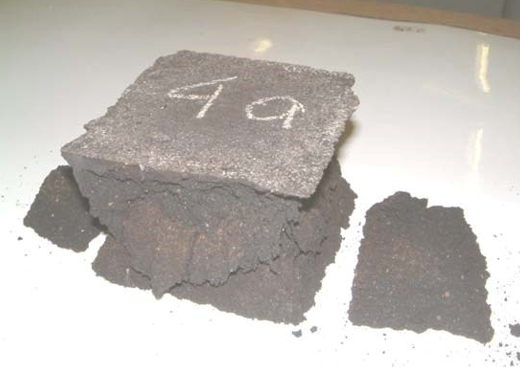N. A. Thanaya1, M. W. Rahman2, J. P. Forth3 and W. Murphy4.
- Research Fellow, School of Civil Engineering, University of Leeds, LS2 9JT, UK, i.n.a.thanaya@leeds.ac.uk
- Research Engineer, Encos Ltd., Leeds Innovation Centre, University of Leeds, LS2 9DF, UK, w.rahman@leeds.ac.uk.
- Senior Lecturer, School of Civil Engineering, University of Leeds, LS2 9JT, UK, j.p.forth@leeds.ac.uk.
- Senior Lecturer, School of Earth Sciences, University of Leeds, LS2 9JT, UK, w.murphy@see.leeds.ac.uk.
ABSTRACT
This paper describes a preliminary study to develop a bitumen bound soil aggregate masonry block initially targeted for use in developing countries. In many ways it is an extension of an adobe unit which uses bitumen as a water-proofer however the proposed new unit is expected to be significantly more durable. Bitumen (100pen grade) was used as the binder, encapsulating the material (soil) and hence binding by means of cohesion. The objective of this paper is to investigate and evaluate the engineering performances of the Soilblock and compare these with a coarse aggregate concrete block found in the UK. The overall performance of the unit in terms of compressive strength and creep was at least comparable with that of the coarse aggregate concrete block. It was found that the properties of the new unit could be improved by increasing the compaction level (effectively reducing porosity) and by increasing the curing temperature / duration. Further optimisation of the manufacturing process is required however currently a compaction level of 2 MPa and a curing regime of 200°C for 24 hours are recommended.
KEYWORDS: soilblock, bitumen, cohesion, strength, compaction
C6-2



